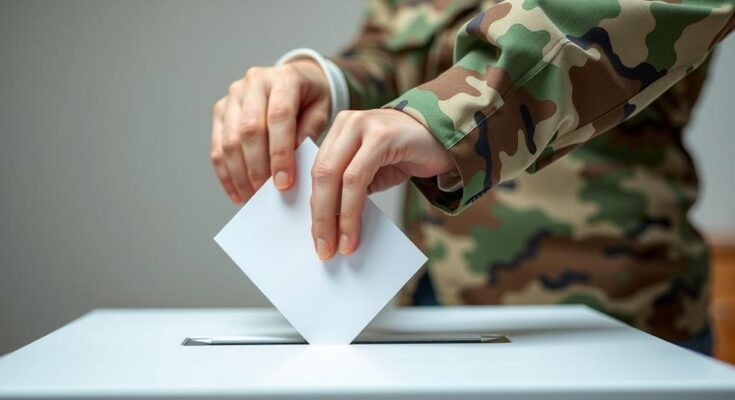Chad held a general election characterized by a low voter turnout of 38 percent amid an opposition-led boycott. President Mahamat Idriss Deby Itno urged participation while opposition leaders claimed the election results were predetermined. Local issues and socio-economic challenges were highlighted as critical factors in voters’ decisions. Allegations of electoral fraud and irregularities dominated the discourse surrounding the elections, set against a backdrop of regional instability and previous military rule.
Chad recently conducted a general election amidst significant public skepticism, characterized by an opposition-led boycott aimed at delegitimizing the electoral process. Despite government claims that the election marks a pivotal move toward ending military rule, early reports indicated a low turnout of only 38 percent. Opposition leaders, such as Succes Masra of the Transformers party, asserted that the majority of citizens followed their call to abstain, questioning the validity of the electoral proceedings as preordained results allegedly lay ready in government computers. Amidst these tensions, President Mahamat Idriss Deby Itno encouraged citizens to participate actively in the election, branding the day as “historic.” Some voters expressed a desire for change, while others, like construction worker Herve Natouingan, dismissed casting their ballots as futile in a landscape they perceived as lacking real democratic practices. Local issues were emphasized, notably the plight of nomadic communities affected by climate change, which highlighted the stakes involved in the election, defined by voters seeking better living conditions and justice in governance. Reports of ballot irregularities further complicate the electoral climate, prompting calls from opposition parties for vigilance against alleged fraud orchestrated by the ruling government. Overall, the elections unfolded amid a backdrop of violence from the jihadist group Boko Haram, a recent military accord termination with France, and regional conflicts, including Chad’s implications in Sudan. As labeled by the government, this election is intended as the culmination of a transition towards democracy following President Deby’s accession to power after his father’s death in 2021.
Chad has been under military governance since the death of its long-time leader, Idriss Deby, in April 2021. His son, Mahamat Idriss Deby Itno, assumed power and later solidified his rule through a presidential election deemed illegitimate by opposition parties. The landscape has been marred by significant public disillusionment regarding the electoral process, particularly concerning transparency and fairness. The current elections are regarded as a critical juncture in possibly restoring civilian governance and addressing numerous socio-economic challenges faced by the populace, such as high unemployment and climate-related adversities affecting various communities. The country’s political climate has been further complicated by the presence of extremist threats, particularly from Boko Haram, and Chadian involvement in regional conflicts, notably in Sudan.
The recent general election in Chad, framed by the government as an essential step towards restoring democratic governance, has faced substantial opposition and public indifference. With a notable boycott led by opposition figures citing pre-determined election outcomes, the legitimacy of the electoral process remains intensely scrutinized. Coupled with local grievances and allegations of election irregularities, the results of this election will significantly influence Chad’s political landscape and its ongoing transition from military rule.
Original Source: www.khq.com




